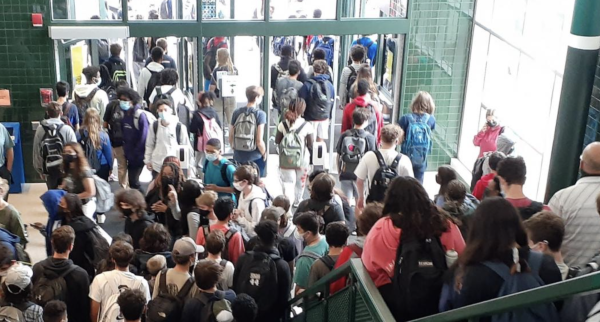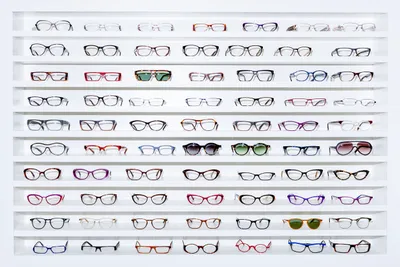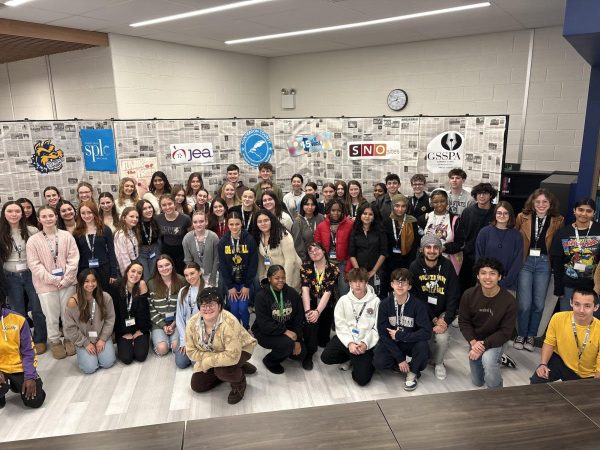The Teenage Coffee Craze
“Can I get an oat milk iced latte with two pumps of caramel syrup, vanilla cold foam, and six pumps of vanilla syrup?” As coffee orders grow more complex, teenagers’ coffee intake grows too. Across the globe, teens consume dangerously high amounts of caffeine. The average age of caffeine consumption in the US is twelve, and this number is only continuing to decrease. So what is the story behind this teenage coffee craze?
Many students and parents believe the answer is due to its increased availability over the years. Once teens are able to drive, coffee is just a simple 5-minute excursion. Another possible reason is that kids are likely to become addicted to the adrenaline rush caused by caffeine. According to coffeeaddiction.com, a study from 2019 showed that 83.2% of teens consume coffee on a regular basis; this number has gone up significantly since 2014, when the average was 75%. In fact, the number of smokers in the US is 30.8 million, but the number of coffee drinkers is 150 million (CA). As the percentage of cigarette addiction decreases, caffeine addiction increases. Will we one day have posters and foundations for quitting caffeine as we do for smoking today? Only time will tell.
Why is it that if coffee is so dangerous, so many people drink it, including our parents? Caffeine was not treated as an addiction until recently, leaving many people uneducated about its effects. Coffee has been proven to increase anxiety rates in adults and teens alike. Recent studies show that 31.9% of teenagers have an anxiety disorder, and adding coffee to the mix can make for a dangerous cocktail, sparking panic attacks. Most teens say they drink coffee to help them stay awake. You may notice students walking through Hunterdon Central’s halls holding Starbucks or Dunkin cups. While caffeine can be a source of energy, it typically only causes spurts of energy. Studies show that those who consume caffeine in the morning are 70% more likely to fall asleep in class. This is because while coffee can give you an extra boost, it can also cause crashes where you feel you have little to no energy at all, but this can differ depending on the person. Due to the energy levels caffeine brings, it can also cause sleep deprivation and restlessness, resulting in a low energy level the next day. Caffeine may cause jitteriness, anxiety, and sleep issues, but it really just depends on how your body reacts to it and knowing your limits.
Caffeine is not all bad, in fact, it can also be beneficial to a school day. Caffeine, besides its use for energy, has been proven to improve memory, reaction times, and mental function. Being energized for a school day is very important and can help students stay alert and ready for tests or quizzes as well as day-to-day classwork. Because a lot of learning has a memorization aspect, improved memory is an extremely beneficial side effect of caffeine. Being able to memorize dates and formulas can come in handy in class, quick reflexes are perfect for playing sports or answering questions. Having a strong mental function throughout the school day is key to getting through long blocks and afterschool clubs.
Now that we have discussed the positives and negatives of the coffee craze “epidemic” here at Central, it’s time we examine the answers real Hunterdon Central students have given about their coffee habits. While it was a close tie, the winner of the decade-long debate Starbucks vs.Dunkin is…Starbucks! Most students interviewed throughout all four grades stated that they prefer Starbucks because of its extensive menu, syrup options, and seasonal drinks. The answer for how many cups of coffee students drink per day differs by grade, with the average being around 2-3 cups. Out of all the answers, the most popular order at both Starbucks and Dunkin was an iced coffee, with different syrups and a dash of cream. The most popular mix/topping for a drink was both syrup and cold foam coming in at an even tie. Most respondents said that their order differs throughout the year. In spring and summer months they usually ordered an iced beverage, while in fall and winter months they opted for a hot or seasonal beverage. Sticking with the national average, most Hunterdon Central students buy more coffee in the winter, particularly because of the holiday beverage options. Lastly, when asked if they buy food with their coffee or have it by itself almost all students agreed that they prefer to have it by itself as breakfast or a snack.
Overall, coffee is definitely one of the most beloved beverages of Hunterdon Central students, and in the world. It only continues to spike in popularity. Next time you’re in line at your favorite coffee shop, think about your coffee habits, and how big of a role coffee plays in your everyday life.
Sources:
Hillard, Jenna. “Caffeine Addiction and Abuse” 9 July 2019, https://www.addictioncenter.com/
Stuart, Annie. “Caffeine Myths and Facts” 12 June 2021, https://www.webmd.com/










